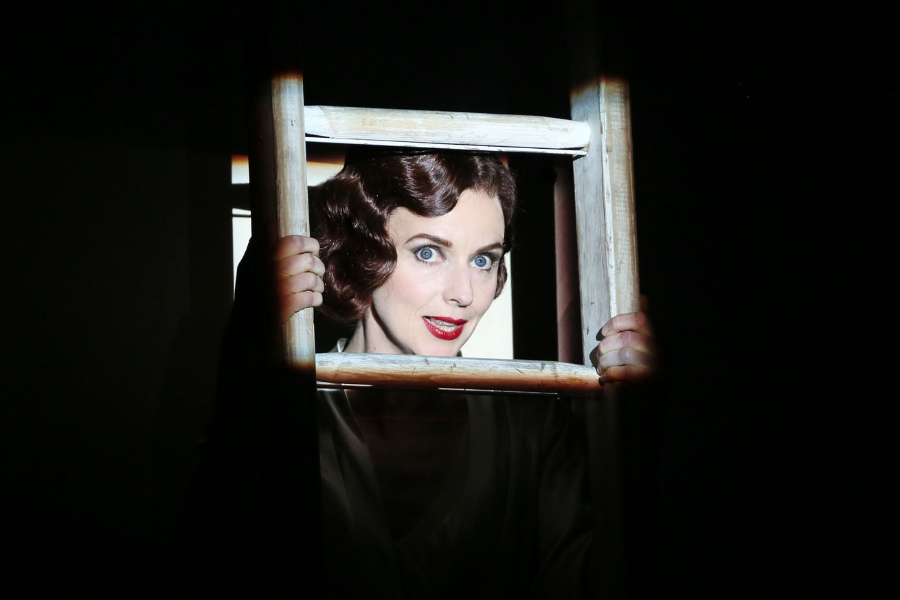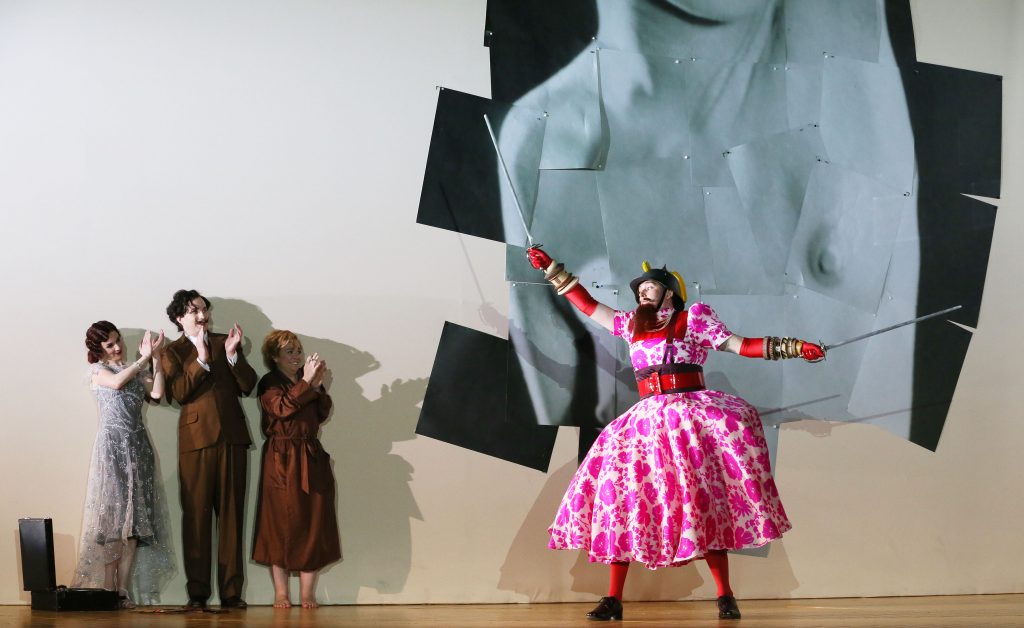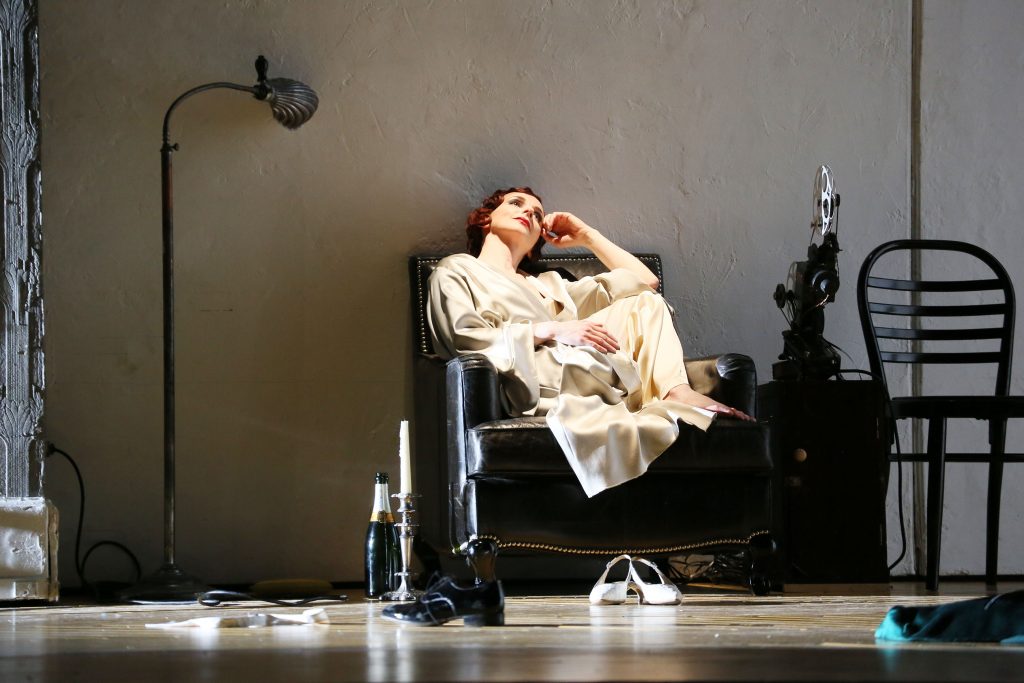The Teatro Real premieres in Spain the first stage version of “Parténope”, by Georg Friedrich Händel

9 performances of Parténope will be offered, between November 13 and 23, in the famous production of the English National Opera premiered in 2008, in co-production with the operas of San Francisco and Australia. For the staging of the opera, Christopher Alden was inspired by “surrealism and its erotic vision of the psyche”, moving the plot to a Parisian salon of artists and bohemians in the bustling 1920s. Two select casts alternate in the performance of the opera, with prominent singers such as Brenda Rae, Iestyn Davies, Anthony Roth Costanzo and Nikolay Borchev.
The Teatro Real will offer, for the first time in Spain, a staged version of Parténope, by Georg Friedrich Händel (1685-1759), in the iconic production of the English National Opera, 2008, co-produced with the operas of San Francisco and Australia .
Under the guise of an eighteenth-century “serious opera”, with its queen and princes of classical antiquity, this score, premiered in 1730 in London, is “contaminated” by countless details of the “comic opera”, such as the frivolity of the theme, the erotic licenses of the libretto, the morally ambiguous characters, or the “elasticity” of its musical structure, in which ensemble numbers abound: two duets, a trio, a quartet and a quintet.
The “unseemly” plot of the opera fits best into the freedom of the bufo genre: Parthenope, founding queen of Naples, has to choose one of her four suitors: the fiery Arsace (prince of Corinth), the shy Armindo (prince of Rhodes ), the warrior Emilio (prince of Cuma) or the seductive Eurimene, who is actually Rosmira, Arsace’s spiteful ex-partner, who disguises herself as a man to take revenge on her former lover whom she still loves and compete with him in the seduction of the Queen.

ENO “Partenope”: Matthew Durkan, James Laing, Sarah Tynan y Stephanie Windsor-Lewis (c) Donald Cooper
Arsace and Armindo are played by the “feminine” voices of two countertenors, and Eurimene is Rosmira disguised as a man, who seeks the favors of another woman. The transvestism, sexual freedom and gender fluidity ”of the opera, whose motor is love and desire, fit perfectly with“ surrealism and its vision of the erotic nature of the psyche ”, according to stage director Christopher Alden .
With the complicity of the set designer Andrew Lieberman and the costume designer Jon Morrell, the characters parade through the Art Deco mansion of Parténope, in full effervescence of the avant-garde, with nods to some of its protagonists, such as Man Ray or André Breton. In that space of freedom, vice, creativity, glamor and pleasure, Parténope reigns like a muse, from her bedroom, an object of desire for her court of admirers.
At the Real, two casts will alternate, with prominent Baroque singers, in the interpretation of the six characters of the opera, who, together, will also take on the choir parts, as is often the case in Handel’s operas.
The sopranos Brenda Rae and Sabina Puértolas (Parténope) will give life to the score; the mezzo-sopranos Teresa Iervolino and Daniela Mack (Rosmira); countertenors Iestyn Davies and Franco Fagioli (Arsace), and Anthony Roth Costanzo and Christopher Lowrey (Armindo); the tenors Jeremy Ovenden and Juan Sancho (Emilio) and the baritones Nikolay Borchev and Gabriel Bermúdez (Ormonte), together with the Titular Orchestra of the Teatro Real, under the musical direction of Ivor Bolton, who will also be responsible for the accompaniment to the harpsichord.
The premiere of Parténope, by Georg Friedrich Händel, at the Teatro Real, will be added to the ten titles by this composer that have been offered since its reopening: Giulio Cesare (2002), Ariodante (2007 and 2018), Tamerlano (2008), Il trionfo del tempo e del disinganno (2008), Tolomeo, Re d ”Egitto (2009), Theodora (2009), Agrippina (2009 and 2019), Alcina (2015) and Rodelinda (2017).
Parténope is unique and heterodox within Handel’s operatic corpus. Perhaps today’s viewer has a greater capacity to enjoy and understand the genius of this score, whose essence and values enhance the ingenious dramaturgy of Christopher Alden and the mastery, musicality and delivery of Ivor Bolton.






